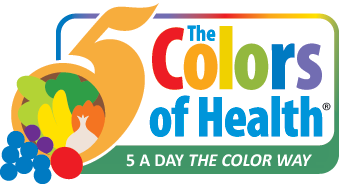
Research shows that people who eat more fruits and vegetables as part of an overall healthy diet may reduce their risk of many diseases, including heart disease, high blood pressure and some cancers. Consider:
Most fruits and veggies are naturally low in calories, sodium and fat–with zero cholesterol. It’s OK to eat more! Fruits and veggies provide many essential nutrients that we need more of, including:
- Calcium
- Essential for healthy bones and teeth. Also needed for healthy muscles, nerves and some glands.
- Fiber
- Important to help reduce blood cholesterol levels and may lower risk of heart disease, obesity and type 2 diabetes. Also important for proper bowel function.
- Folate (folic acid)
- Helps the body form red blood cells and helps reduce the risk of birth defects
- Iron
- Needed for healthy blood and normal functioning of all cells
- Magnesium
- Necessary for healthy bones. Involved with more than 300 enzymes in your body. Inadequate levels may result in muscle cramps and high blood pressure.
- Potassium
- Important to help combat high blood pressure, a risk factor for heart disease. May also reduce the risk of developing kidney stones and help to decrease bone loss.
- Vitamin A
- Keeps eyes and skin healthy and helps protect against infections.
- Vitamin C
- Important for growth and repair of all body tissues and keeps teeth and gums healthy. Provides antioxidant defense against infection and disease.
Fiber-rich fruits and vegetables satisfy your hunger with fewer calories, helping you to maintain healthy body weight.
Fruits and veggies also provide phytonutrients that work synergistically with the vitamins, minerals and fiber to help reduce disease risk.
Let Color Be Your Guide
Variety, variety, variety. To get the full range of vitamins, minerals, fiber and phytonutrients your body needs, you need to eat a wide variety of fruits and vegetables. Eat all your colors, every day!




